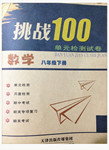题目内容
阅读下面短文,从短文后各题所给的四个选项(A、B、C和D)中,选出可以填入空白处的最佳选项,并在答题卡上将该项涂黑。
Diana got married and had a 5-year-old son named Dusfin. They lived a very happy life and have been expecting a new family member coming. But a disease forced her to experience an emergency operation to deliver their new daughter.At 12 inches long and ________ only one pound and nine ounces,she was a premature baby.But the doctor’s soft words dropped like ________.“I don’t think she’s going to make it” he said.“There’s only a 10-percent ________ she will pull through the night,and even then,if by some chance she does make it,her future could be a very ________ one.”
David and Diana listened as the doctor ________ the serious problems the newly—born baby,Anna,would ________ face if she survived.She would never walk;she would never ________;she would probably be blind;and so on.
“No! No!” was all Diana could ________.The whole family had long ________ the day they would have a daughter to become a ________ of four.Now,within a matter of hours,that dream was slipping away. But Diana insisted,“I don’t care what the doctors say! One day she will be coming home with us!”
Certainly,there was ________ a moment when Anna suddenly grew ________.But as the weeks went by,she did ________ gain an ounce of weight here and an ounce of ________ there. At last,when Anna turned two months old,her parents were able to ________ her in their arms for the very first time though ________ continued to gently but coldly ________ that her chances of surviving,much less living any kind of normal life,were next to zero.
Finally,Anna went home from the hospital,just as her mother had ________.Today,five years later,Anna is a little but lively young girl with bright gray eyes ________ a strong interest for life. She shows no ________ of any mental or physical injuries. Simply,she is everything a little girl can be.
1.A.weighingB.countingC.measuringD.looking
2.A.giftsB.rainsC.ordersD.bombs
3.A.chanceB.rightC.deductionD.result
4.A.easyB.commonC.cruelD.peaceful
5.A.solvedB.collectedC.createdD.described
6.A.bravelyB.likelyC.completelyD.firmly
7.A.talkB.tasteC.breatheD.see
8.A.actB.considerC.sayD.refuse
9.A.gone throughB.given upC.relied onD.dreamed of
10.A.familyB.groupC.teamD.unit
11.A.everB.evenC.neverD.still
12.A.happierB.strongerC.quieterD.calmer
13.A.strangelyB.sharplyC.particularlyD.slowly
14.A.strengthB.progressC.skillD.wisdom
15.A.holdB.graspC.touchD.flick
16.A.barbersB.parentsC.relativesD.doctors
17.A.noticeB.warnC.judgeD.present
18.A.doubtedB.fearedC.hopedD.accused
19.A.butB.andC.soD.or else
20.A.effectsB.marksC.signsD.evidences
 挑战100单元检测试卷系列答案
挑战100单元检测试卷系列答案
